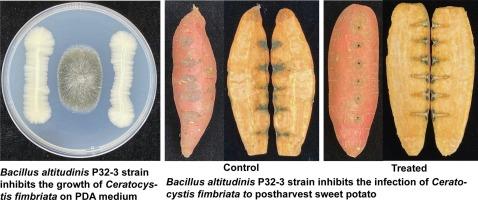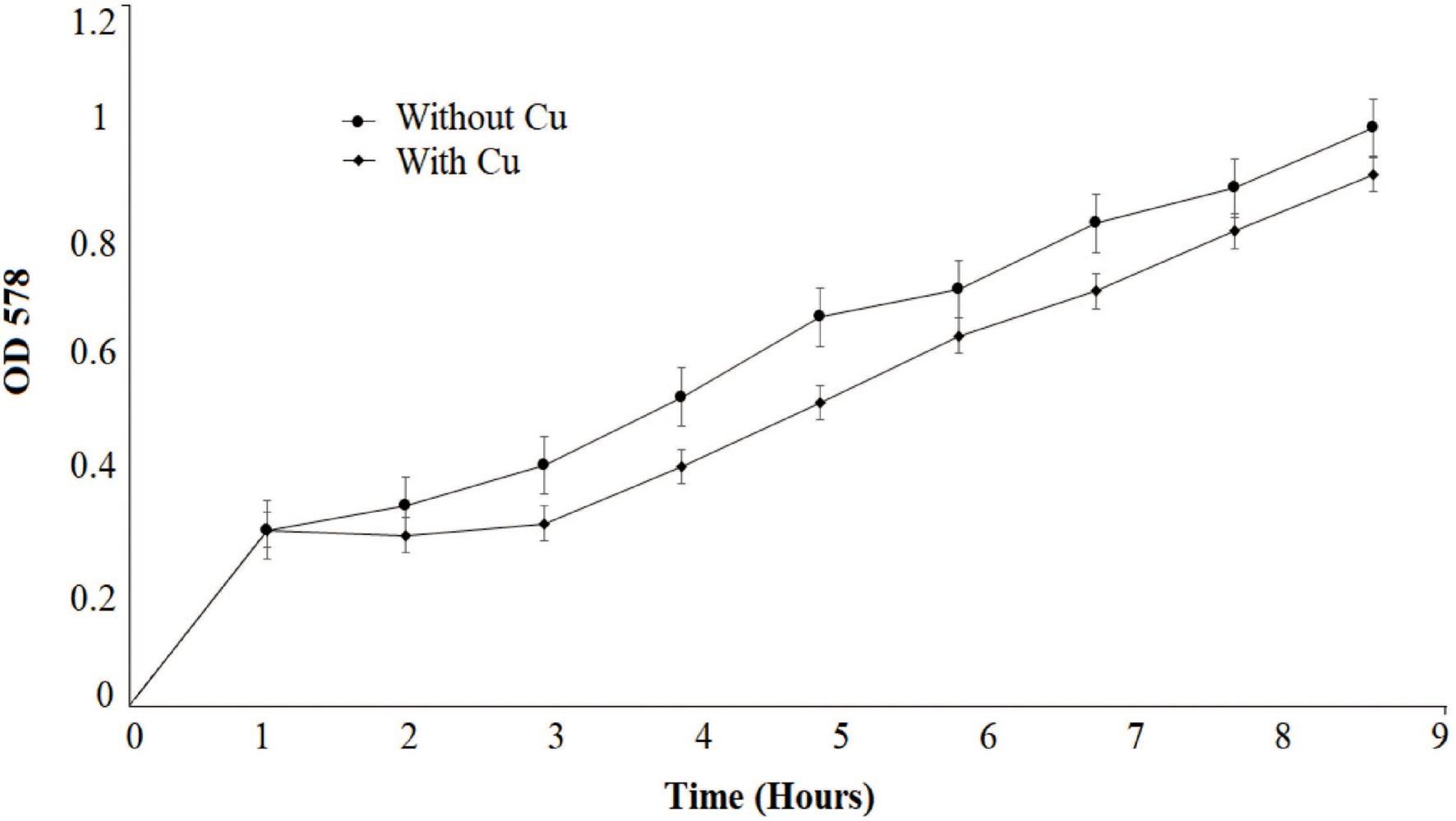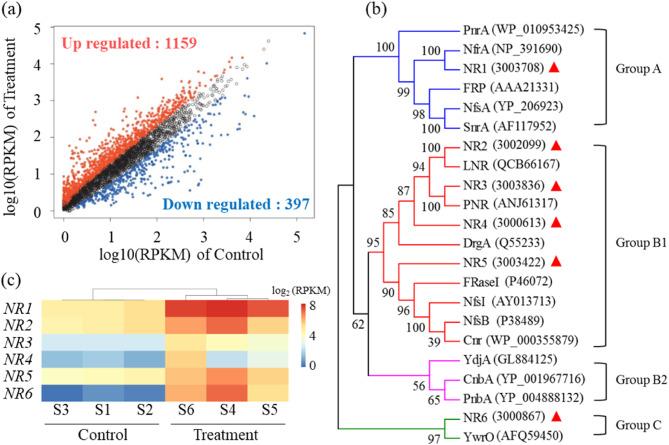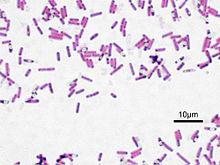In the pursuit of enhancing swine health and productivity through nutritional strategies, the exploration of probiotics has gained substantial attention in recent years. Probiotics, living microorganisms that confer health benefits to the host when administered in adequate amounts, have emerged as a pivotal tool in modulating the gut microbiome, thereby improving digestive health and immune function. Among the myriad of microbial candidates, Bacillus altitudinis, a resilient spore-forming bacterium, stands out for its potential in agricultural applications, particularly in swine nutrition. This article delves into groundbreaking research investigating the impact of maternal and/or post-weaning supplementation with Bacillus altitudinis spores on the microbial composition of colostrum, digesta, and faeces in pigs. Through a meticulous analysis, the study illuminates the ways in which this probiotic intervention alters the gut microbiota landscape, potentially paving the way for improved health outcomes in pigs. The implications of these findings are vast, offering insights into novel nutritional strategies that could revolutionize the swine industry by enhancing gut health, boosting immunity, and improving overall animal welfare.
Table of Contents
- Impact of Bacillus altitudinis Spores on Sow and Piglet Microbiota
- Exploring the Role of Maternal and Post-weaning Supplementation
- Influence of Bacillus altitudinis on Colostrum and Digestive Health in Pigs
- Recommendations for Implementing Bacillus altitudinis Supplementation in Swine Diets
- Q&A
- Insights and Conclusions

Impact of Bacillus altitudinis Spores on Sow and Piglet Microbiota
Embarking on a journey to unveil the mysteries of gut health in swine, recent research demonstrates a fascinating interplay between Bacillus altitudinis spores and the gut microbiota of sow and piglets. It’s widely known that the gut microbiota plays a crucial role in the health and development of pigs, affecting everything from nutrient absorption to immune system strength. The study in focus introduces Bacillus altitudinis spores, not commonly encountered in the pig farming realm, as a novel player with the potential to beneficially modulate the microbial environment of both sow and offspring.
The research findings underscore a significant shift in the microbial composition of colostrum, digesta, and faeces when sows and their piglets were supplemented with Bacillus altitudinis spores, either during maternity or post-weaning. Specifically, an increase in beneficial bacteria like Lactobacillus was observed, alongside a decrease in potentially harmful bacteria such as Escherichia coli. This microbial modulation suggests a promising avenue for enhancing gut health and overall well-being in pigs. To illustrate, let’s delve into some of the notable changes recorded:
| Sample Type | Significant Increase in | Significant Decrease in |
|---|---|---|
| Colostrum | Lactobacillus | Escherichia coli |
| Digesta | Bifidobacterium | Clostridium |
| Faeces | Faecalibacterium | Enterobacter |
This striking transition not only highlights the potential of Bacillus altitudinis spores in shifting microbial communities towards a healthier composition but also opens new doors for exploring probiotics as a tool for disease prevention and growth enhancement in pig farming. By improving the balance of gut microbiota, we’re stepping into a realm of animal husbandry that prioritizes both the well-being of livestock and the quality of produce reaching our tables.![]()
Exploring the Role of Maternal and Post-weaning Supplementation
In the intricate ballet of nature and nurture, the influence of maternal diets on offspring’s health is a tale as old as time. Yet, the spotlight has recently shifted towards a more nuanced character in this narrative: bacillus altitudinis, a probiotic that might just be a game-changer in swine nutrition. When sows are supplemented with this particular strain of probiotics during pregnancy, the composition of the colostrum alters. Not just any alteration, mind you, but a significant shift towards a microbial makeup that could bolster the piglets’ immune systems right from their first gulp of life. This isn’t about transforming their microbiota arbitrarily but steering it towards a community that champions resilience and health.
Furthermore, the influence of bacillus altitudinis doesn’t wane as piglets wean. Post-weaning supplementation presents an exciting chapter in promoting gut health and overall wellbeing. The digesta and feces of pigs receiving this probiotic post-weaning tell a compelling story of enhanced microbial diversity and stability. Such benefits resonate well beyond the microbiome, potentially translating into improved growth performances and reduced incidences of diseases. Here’s a simplified glance at the observed benefits:
- Improved microbial composition of colostrum
- Enhanced gut health post-weaning
- Stabilized microbial community in digesta and feces
- Potential reduction in disease occurrences
Consider this passage a window into the profound implications bacillus altitudinis supplementation could have on swine production. The true value lies not only in the immediate health benefits but in understanding the cascading effects of a well-balanced microbiome, starting from the earliest stages of life. The journey of discovery continues, shedding light on how small microbial shifts can lead to significant improvements in animal health and welfare.
| Supplementation Stage | Benefit |
|---|---|
| Maternal | Altered colostrum composition |
| Post-weaning | Improved gut health |
By integrating these practices into swine management, the potential for enhanced animal health and performance becomes not just a hypothetical benefit but a tangible reality. The journey into understanding and applying these microbial marvels is just beginning, heralding a promising avenue for research and practical application in the field of animal science.
Influence of Bacillus altitudinis on Colostrum and Digestive Health in Pigs
The groundbreaking study on giving Bacillus altitudinis spores to sow and their piglets either before or after weaning brings to light the significant role this probiotic plays in shaping the gut health landscape of pigs. When administered, these spores have shown a remarkable ability to influence the microbial community within the colostrum, an essential source of nutrition and immunity for newborn piglets. Furthermore, the intervention extends its benefits to modifying the microbial composition in digesta and faeces, laying down a foundation for enhanced digestive health and nutrient absorption capabilities in pigs. This pivotal research underscores the potential of Bacillus altitudinis as a natural and effective means to promote gut health from the earliest stages of life.
In detailing the effects of Bacillus altitudinis supplementation, a spotlight is cast on the noticeable shifts in the bacterial populations across different digestive stages, from colostrum through to faeces. Especially noteworthy is the increase in beneficial bacterial strains such as Lactobacillus and Bifidobacterium, known for their role in facilitating healthy gut flora and improving immunity. These changes not only imply a robust digestive tract capable of fending off pathogens but also point towards an elevated absorption of nutrients, critical for the growth and development of piglets. The synergistic relationship between maternal and post-weaning supplementation with Bacillus altitudinis spores paves the way for novel dietary strategies geared toward optimizing swine health and productivity.

Recommendations for Implementing Bacillus altitudinis Supplementation in Swine Diets
Introducing Bacillus altitudinis into the diets of swine, whether during the maternal phase or post-weaning, demands careful consideration of various factors to ensure successful integration and effective results. Primarily, the dosage and administration method are critical components that can significantly influence the outcomes. It is recommended to initiate supplementation with a careful analysis of the specific strain of Bacillus altitudinis, as its potency and effects can vary. Optimization of dosage should be based on the age, weight, and health status of the pigs. Typically, incorporating the spores into feed in a gradual manner can help in monitoring the response and adjusting the quantities accordingly to achieve the desired microbial composition changes in colostrum, digesta, and faeces.
Moreover, the timing and duration of supplementation play a pivotal role. For maternal supplementation, introducing Bacillus altitudinis spores during the late gestation period is advantageous, as it allows the beneficial bacteria to colonize the gut of the sow, thereby enhancing the microbial quality of the colostrum. For piglets, starting post-weaning supplementation immediately after weaning maximizes the benefits, supporting them through the transition in diet and environment. Regular monitoring and evaluation of the pig’s health and growth performance, alongside the microbial composition of the feces, are essential to measure the efficacy of the supplementation. Adjusting the dietary inclusion rates based on these observations ensures that the swine are receiving the optimal benefits from Bacillus altitudinis supplementation, enhancing overall health and growth performance.
| Phase | Supplementation Timing | Recommended Dosage |
|---|---|---|
| Maternal | Late Gestation | Variable based on sow size and condition |
| Post-Weaning | Immediately after weaning | Adjust according to piglet weight and health status |
Q&A
### Q&A: Unlocking the Potential of Bacillus altitudinis in Pig Nutrition
Q: What is the focus of the study on Bacillus altitudinis spores and pigs?
A: The study investigates the effects of maternal and/or post-weaning supplementation with Bacillus altitudinis spores on the microbial composition of colostrum, digesta, and faeces in pigs. Essentially, it examines how this particular probiotic can influence the gut microbiota and overall health of both sows and their offspring.
Q: Why is Bacillus altitudinis chosen for this study?
A: Bacillus altitudinis is known for its probiotic properties, including the ability to withstand harsh environmental conditions, making it a suitable candidate for dietary supplementation. Its potential to positively modulate the gut microbiome, enhance nutrient absorption, and improve gut health in pigs positions it as a valuable subject for research.
Q: How does the study administer Bacillus altitudinis to pigs?
A: The research details maternal supplementation during gestation and lactation periods, as well as post-weaning supplementation directly to the piglets. The administration method ensures the Bacillus altitudinis spores are ingested, allowing them to colonize the gut and modulate the microbiota effectively.
Q: What significant outcomes were observed in the study?
A: Significant observations include alterations in the microbial composition of colostrum, digesta, and faeces, indicating that Bacillus altitudinis supplementation can influence the gut microbiome. This alteration suggests potential benefits in nutrient absorption, immune system enhancement, and overall health improvement in both sows and their offspring.
Q: Why is the microbial composition of colostrum important for piglets?
A: The microbial composition of colostrum plays a critical role in establishing the initial gut microbiota in newborn piglets, which is essential for their development, immune function, and long-term health. Alterations in this microbial environment can have significant effects on the piglets’ ability to fight off infections and digest nutrients.
Q: How does this research benefit the pig farming industry?
A: This study highlights the potential of probiotic supplementation, like Bacillus altitudinis, to improve the health and productivity of pigs, which can lead to reduced reliance on antibiotics, lower mortality rates, and improved growth performance. Ultimately, these benefits can contribute to more sustainable and profitable pig farming practices.
Q: Are there any considerations or challenges regarding the use of Bacillus altitudinis in pig diets?
A: While Bacillus altitudinis shows promise, the practical application involves considerations such as determining the optimal dosage, ensuring the survival of the spores through the feed processing stages, and evaluating long-term health effects. Further research is needed to address these challenges and confirm the efficacy and safety of Bacillus altitudinis supplementation in commercial pig diets.
Insights and Conclusions
In conclusion, the groundbreaking study on the impact of maternal and/or post-weaning supplementation with Bacillus altitudinis spores on the microbial composition of colostrum, digesta, and faeces in pigs paves the way for innovative approaches in animal husbandry and nutrition. By carefully examining and documenting the shifts in microbial populations across critical developmental stages in pigs, this research not only provides a deeper understanding of the microbiota’s dynamic nature but also underscores the potential of probiotic interventions to enhance health and growth in livestock. The implications of these findings extend beyond the scope of pig farming, offering valuable insights into the broader field of agricultural science and microbial ecology. As we continue to explore the complex interplay between diet, microbiota, and host health, studies like this serve as vital stepping stones toward more sustainable and efficient animal production systems. Further research in this direction is essential to fully harness the benefits of microbial manipulation through dietary supplementation, ultimately contributing to the betterment of animal welfare and productivity.


